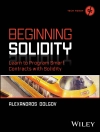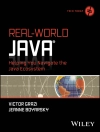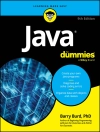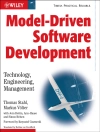William ‚Bo‘ Rothwell’s
Advanced Perl Programming continues where his previous book left off, more or less, as it guides you through advanced techniques of the Perl programming language starting with command-line options, references, and arrays and hashes from advanced data types. Next, you’ll learn about typeglobs for symbolic entries.
Additionally, you’ll see advanced subroutine handling, then packages and namespaces. Furthermore, you’ll build advanced modules and install CPAN modules. Unlike Java and C++, modules have been around in Perl for a long time now. Along the way, you’ll learn and use POD mark up language for Perl documentation.
Moreover, you’ll get a survey of the many advanced features and data structures of the current Perl programming language. You’ll also get a survey of the new features of the latest Perl 5.x release. After reading and using this book, you’ll have the tools, techniques, and source code to be an expert Perl programmer.
What You Will Learn
- Carry out command-line parsing and extract scripts
- Create references; return values from a reference; work with the ref Function and strict refs
- Work with advanced Perl data types using arrays, hashes, and hash of hashes
- Use Typeglobs for symbol table entries
- Build modules and install CPAN modules
- Write documentation for Perl using POD
- Work with the newest features in Perl, including the smartmatch operator, yada yada, automated regex modifiers, the CORE namespace and more
Who This Book Is For
Those with experience with Perl or who have read Rothwell’s prior books,
Beginning Perl Programming and
Pro Perl Programming.
Inhaltsverzeichnis
1. Command Line Options.- 2. References.- 3. Advanced Data Types: Arrays.- 4. Advanced Data Types: Hashes.- 5. Typeglobs.- 6. Advanced Subroutine Handling.- 7. Packages and Namespaces.- 8. Building Modules.- 9. Installing CPAN Modules.- 10. POD.- 11. Advanced Features.- 12. Advanced Data Structures.- 13. New Features.
Über den Autor
At the impressionable age of 14, William ‚Bo‘ Rothwell crossed paths with a TRS-80 Micro Computer System (affectionately known as a “Trash 80”). Soon after the adults responsible for Bo made the mistake of leaving him alone with the TSR-80. He immediately dismantled it and held his first computer class, showing his friends what made this “computer thing” work. Since this experience, Bo’s passion for understanding how computers work and sharing this knowledge with others has resulting in a rewarding career in IT training. His experience includes Linux, Unix, Dev Ops tools, and programming languages such as Perl, Python, Tcl, and BASH.












